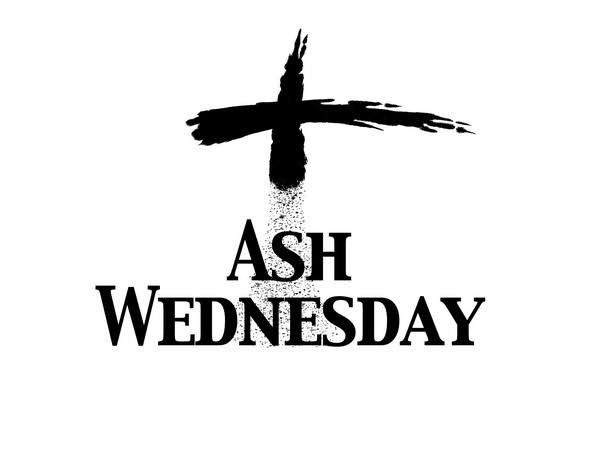INTRODUCTION
Pope St. Clement I in his letter to the Church in Corinth
avers, “For we have only to survey the generations of the past to see that in
every one of them the Lord has offered the chance of repentance to any who were
willing to turn to him. When Noah preached repentance, those who gave heed to
him were saved. When, after Jonah had proclaimed destruction to the people of
Nineveh, they repented of their sins and made atonement to God with prayers and
supplications, they obtained salvation, notwithstanding that they were
strangers and aliens to him.” (The Second
Office of Reading for Ash Wednesday, The Divine Office, Vol. II (Lent and
Easter), p. 6).
Taking a
lift from St. Clement’s epistle to the Corinthians one will not in any way deny
God’s ever readiness to welcome us back no matter how scarlet our sins may be.
The only thing He asks of us, is our willingness to return to Him. Recalling
the prophecy of Ezekiel, “If a wicked man turns away from all the sins he has
committed and keeps all God’s decrees and does what is just and right, he will
surely live; he will not die. None of his offences will be remembered against
him. Because of the righteous things he has done he will live.” (Ezekiel
18:21-22). This same proclamation was made by Christ inviting you and I to
repent of our sins for the kingdom of God is at hand. (cf. Matt 4:17).
It
is against this background that the Church invites us into the solemn season of
Lent beginning with the service of Ash Wednesday, as a preparatio for the forty days long walk of prayer, fasting and
almsgiving with the Lord. The term “Ash” is referred to as earthly or mineral
combustible substances remaining after combustion, as woods or coal. It may
also be designated with the term “dust”. Within the context of this work, we
will use both terms interchangeably. In the light of this unique event in the
economy salvation of man, we will take a look at the biblical imports,
historical dimension of the Ash Wednesday liturgy, the rite of imposition of
ashes, as well as its spiritual significance in our liturgical and spiritual lives.
BIBLICAL
BACKGROUND
There are
various instances both in the Hebrew and Christian Testaments (Old and New
Testaments) where God invites man to reconciliation. In the New Testament
account, Christ employed the parables of the lost sheep, coin and prodigal son
to remind us of God’s unfathomable mercy depending on our willingness and
acceptance to return to Him. (cf. Matt 18:12-14; Lk 15:8-10; Lk 15:11-32).
On the other
hand, Prophet Joel invites the people of Israel to return to the Lord with all
their hearts, with fasting, weeping and mourning. (cf. Joel 2:12-13). Malachi
also prophesy to the Israelites God’s willingness to return to them if they are
willing and ready to return to Him. (cf. Mal 3:7). Ezekiel further revealed
that God does not take pleasure in the death of the wicked (cf. Ezek 18:23). In
the same way that Isaiah reminded the people of Israelites of God’s invitation
to sinners to depart from their old ways. (cf. Isaiah 55:7). Now the question
is. How do they approach the “throne of mercy” for the forgiveness of their
sins? The Holy Scripture has cited various instances and approaches of seeking
God’s face for repentance by the people of the old. The scripture narrates
various forms of the penitential acts. Among them were: putting on sackcloth,
weeping, mourning, sitting on ashes, rubbing of ashes, fasting, etc. But our
concern is the act involving fasting and ashes which are part of the Ash
Wednesday’s liturgical rite.
In the Old Testament ashes and dust were used
as signs of mortality and worthlessness, sorrow and repentance. Now let us take
a closer look into instances where ashes were used as penitential gesture. When Tamar was raped by her
half-brother, "she sprinkled ashes on her head, tore her robe, and with
her face buried in her hands went away crying" (2 Samuel 13:19). The sign
was used to express sorrow for sins and faults. In Job 42: 6, Job says to God: “Therefore I
retract, and I repent in dust and ashes”." The prophet Jeremiah calls for
repentance by saying: "O daughter of my people, gird on sackcloth, roll in
the ashes" (Jer. 6:26). The prophet Daniel recounted
pleading to God: "I turned to the Lord God, pleading in earnest prayer,
with fasting, sackcloth and ashes" (Dan. 9:3). Just prior to the New
Testament period, the rebels fighting for Jewish independence, the Maccabees,
prepared for battle using ashes: "That day they fasted and wore sackcloth;
they sprinkled ashes on their heads and tore their clothes" (1 Maccabees 3:47; see also 4:39). In the New Testament account
Christ made allusion to this saying: "Woe to you, Chorazin! Woe to you,
Bethsaida! For if the miracles had occurred in Tyre and Sidon which occurred in
you, they would have repented long ago in sackcloth and ashes.” (Matt 11:21).
In view of these scriptural passages we have
seen the basic events where ashes were used. It is symbolically representing “metonoia” that is repentance or
changing ones’ way of life being the focal point for this reflection. At this
juncture, let us take a step into the historical background of Ash Wednesday
liturgy and how ashes came into the celebration.
THE
HISTORICAL BACKGROUND OF ASH WEDNESDAY LITURGY
Historically,
the ashes of burned objects such as plants, animals, human bodies and dust are
commonly found in use among ancient peoples for religious, magical and medical
purposes. Among these ashes there are certain ashes or dust that have sacred
character and power, above all, ashes or dust signify mortality, mourning and
penance or repentance. In line with this ritual, Christian liturgical usage and
symbolism of ashes or dust is traced to Jewish tradition.
Presently,
the Roman liturgy uses ashes only on Ash Wednesday liturgy. The practice of all
the faithful receiving ashes on their heads has been a universal since the
synod of Benevento in 1091. However, this was known by the Anglo-Saxons a
century earlier. The first prayer for the blessing of the ashes gives them a
sacred character as sacramental for healing from sin; the other three prayers
and the formula of imposition express their symbolism of mortality. Originally
ashes were used as signs of private penance; then they became a part of the
official ritual for public penitents and were given to them only. (cf. Johnson,
E. J., Ashes, Liturgical Use Of, New
Catholic Encyclopaedia, Vol. I USA: Jack Heraty & Associates, Inc., 1967, p.948).
Christians continued the practice
of using ashes as an external sign of repentance. Tertullian (c. 160 – c. 225) said that
confession of sin should be accompanied by lying in sackcloth and ashes. The great Church historian Eusebius (c. 260/265 – 339/340) recounts
how a repentant apostate Pope Zephyrinus covered himself with ashes when
begging to be re- admitted into communion with the Church. John W. Fenton
writes that: "by the end of the 10th century, it was customary in Western
Europe (but not yet in Rome) for all the faithful to receive ashes on the first
day of the Lenten fast. In 1091, this custom was then ordered by Pope Urban II
at the council of Benevento to be extended to the church in Rome. Not long
after that, the name of the day was referred to in the liturgical books as "Feria Quarta Cinerum" (i.e.
Ash Wednesday)." (cf. Fenton, J.
W., "Orthodox Ash Wednesday" Antiochian
Western Rite Vicariate, 2013). The public penance that grave sinners underwent
before being admitted to Holy Communion just before Easter lasted throughout Lent, on the first day of which they
were sprinkled with ashes and dressed in sackcloth.
At the dusk of the first
millennium, the discipline of public penance was dropped, the season of Lent
began, seen as a general penitential period, was marked by sprinkling ashes on
the heads of all during Ash Wednesday liturgy till date. This practice is found
in the Gregorian Sacramentaryof the late 8th century. ("Ash Wednesday" Encyclopaedia
Britannica).
ASH
WEDNESDAY’S LITURGICAL RITE AND ITS SPIRITUAL SIGNIFICANCE
Ash Wednesday marks the start of
a 40-day period which is an allusion to the separation of Jesus from people to
desert for fasting and prayer. During this time He was tempted. (cf. Matthew 4:1-11; Mark 1:12-13; and Luke 4:1-13). While not specifically
instituted in the Bible text, the 40-day period of repentance is also analogous
to the 40 days during which Moses repented and fasted in response to the making of
the Golden calf. (cf. Exodus 34:27-28). In the
Jewish religious setting till date, the Jews follow a 40-day period of
repentance in preparation for and during the High Holy Days from Rosh Chodesh Elul to Yom
Kippur (the day for atonement).
Ash Wednesday is observed by
fasting, abstinence from meat and repentance. In the Western Christianity it is first day of Lent. It occurs 46
days (40 fasting days, if the six Sundays, which are not days of fast, are
excluded) before Easter and can fall as early as February 4 or as late as March
10. Ash Wednesday is observed by many Western Christians. The day derives its name from the practice of
blessing ashes made from Palm branches blessed on the previous year's Palm
Sunday, and placing them on the foreheads
of participants to the accompaniment of the words "Remember that you are
dust, and to dust you shall return", an Extract from the Old Testament (cf.
Genesis 3:19).
In the 1969 revision of the Roman
Rite, an alternative formula based on Mark 1:15, “Repent, and believe in the
Gospel” was introduced and given first place. The old formula, based on the
words spoken to Adam and Eve after their sin, reminds worshippers of their
sinfulness and mortality and thus, implicitly, of their need to repent in time.
(cf. Bucher, R. P., The History and Meaning of Ash Wednesday" as culled from "Ash Wednesday". Encyclopaedia
Britannica). The newer formula makes explicit
what was only implicit in the old.
However, the act of imposition of
ashes varies; various manners of placing the ashes on worshippers' heads are in
use within the Roman Rite of the Catholic Church, the two most common formulae are
using the ashes to make a cross on the forehead and sprinkling the ashes over
the crown of the head. Originally, the ashes were strewn over men's heads, but,
probably because women had their heads covered in church, were placed on the
foreheads of women. In the Catholic Church the manner of imposing ashes depends
largely on local custom, but the general custom is using it to make the sign of
the cross on the foreheads.
Consequently, the significance of
this religious act cannot be over emphasized, as we are always and at every
point in time in need of God’s mercy and compassion. It is a moment of return
to the Lord with prayer, fasting and repentance. The service of Ash Wednesday
puts us in the right liturgical atmosphere to begin the forty days of long walk
with the Lord. Ashes remain a sacramental. Their reception with humility is a
sign of penance. We wear them publicly to acknowledge our need to atone for our
sins. "God desires not the death of the sinner." He is moved by our
humiliation, and His justice is appeased by satisfaction, Says Eileen
O'Callaghan. It symbolizes the transience of our earthly status. The body must
fall temporarily into dust. This fact should serve as a challenge to spiritual
accomplishments. Through grace we were "buried" in Christ that we may
rise with him and "live unto God."
CONCLUSION
Recalling the words of Thomas
Merton, “Even the darkest moments of
the liturgy are filled with joy. And Ash Wednesday, the beginning of the Lent
fast, is a day of happiness, a Christian feast. It cannot be otherwise, as it
forms part of the great Easter cycle.” In this spirit, the service of
Ash Wednesday should ignite in us a spark of joy for yet another great moment
the Church has offered us to reconcile with the Father. It goes beyond the
outward wearing of the ashes on our foreheads in the public. The primary spot
of this celebration is our heart. As Fr. Saunders a one-time President of the
Notre Dame Institute for Catechetics says: “We again convert our hearts to the
Lord, who suffered, died, and rose for our salvation. We renew the promises
made at our baptism, when we died to an old life and rose to a new life with
Christ finally, mindful that the kingdom of this world passes away, we strive
to live the kingdom of God now and look forward to its fulfilment in heaven.”
Finally, my dear brothers and
sisters in the Lord; let us join the Mother Church in the celebration of this
liturgy for the sanctification of our souls by making sincere effort in putting
ourselves within the ambience of this solemn season. To crown it all, reflect
with me on the words of St. John Baptiste Marie Vianney who avers “At the time
that we deprive ourselves of anything which gives pleasure to do, we are
practising a fast which is pleasing to God because fasting does not consist
solely of privations in the way of eating and drinking, but of denying
ourselves what pleases us most”.














